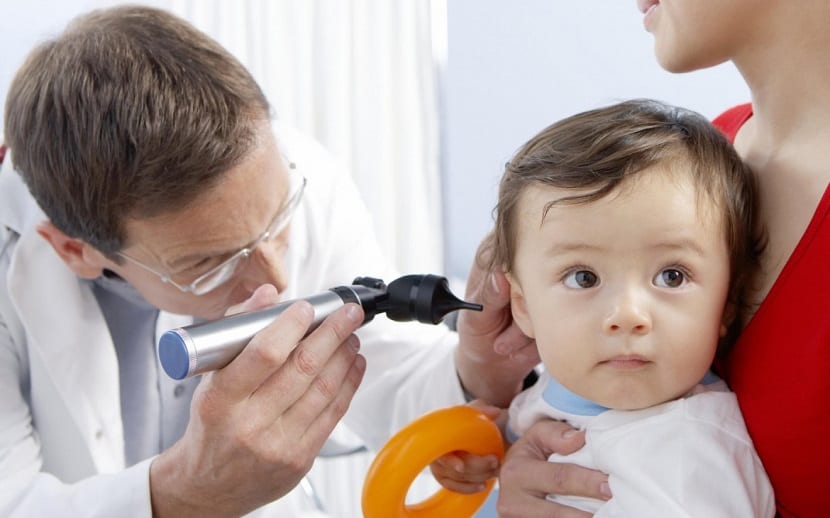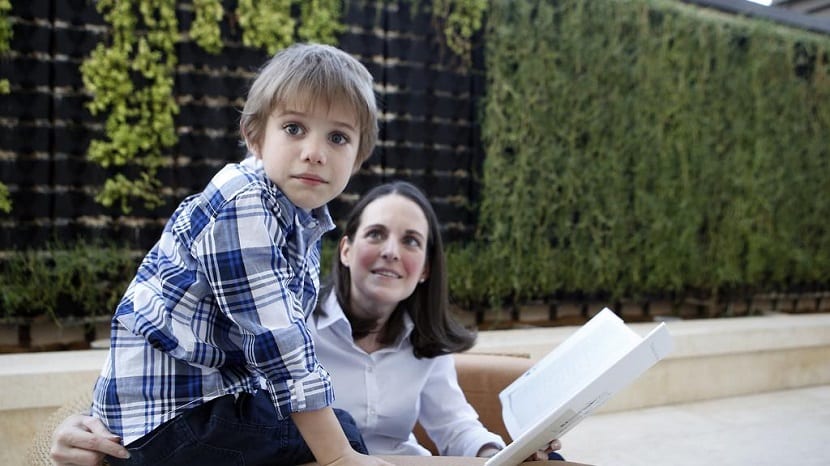
Hearing problems can cause serious problems in the child's development, among them, the delay in language development. Communication is essential to establish social relationships and for communication to exist, there must be a proper method in each case. According to the World Health Organization (WHO), approximately 32 million children in the world have hearing problems.
But what is more alarming is that it is estimated that in 60% of cases, hearing loss could be prevented with early diagnosis. In Spain, newborns undergo various tests in the first hours of life, including a hearing test. But beyond this test, the little ones go a long time without being checked again.
Therefore, it is essential to be able recognize warning signs at home, so that you can intervene early and avoid major consequences.
Consequences of hearing loss

Hearing problems can have serious consequences on a child's development. The main one, the delay in the acquisition of language ability, with all the consequences that this can entail for the child. But in addition, the child can have sociability, learning problems or isolation. Something that can get worse over time and affect the child in his adult life.
For all these reasons, it is very important to pay attention to all signals from home. Fathers and mothers are the people who spend the most time with the little ones and of course, those who can best notice these difficulties. In many cases, it may be any other problem that must be treated in the same way. But when it comes to health issues, it is essential to act quickly.
Warning signs
In addition to submitting your little one to the relevant tests, at home you can observe your little one's reaction to certain sounds. In this way, you can check if your child's hearing loss is occurring for any reason. These are some warning signs, if you detect any of them in your child, do not hesitate to consult with your pediatrician to assess the situation.
In newborn babies
If your baby does not receive a hearing test in the hospital within a few hours of birth, do not hesitate to request it at your health center or referring doctor. These types of tests are completely harmless and do not pose any risk to your baby's health. In addition, they result very effective when detecting a problem hearing.
In babies between 0 and 3 months
Once home, you will have to pay attention to your child's reaction to common sounds, for example, when a door closes or the doorbell rings. You should also observe their reaction when they hear your voice and that of other family members, as well as the sounds their toys make.
Between the 6 and the 9 months
Check if your child reacts to changes in loudness in sounds or if you start to babble when listening to music. Talk close to his face, trying to change the intensity and voice, to see if the little one notices these changes.
Between the 9 and the 12 months
At this age, children begin to detect when you scold them and may try to imitate the words you say. But yes you detect that your child does not make any sound, or react to common ambient sounds, you should consult your pediatrician.

Young and schooled children
If you take your child to the nursery school, teachers will be the people who will surely detect if there is a hearing problem. If your child is at home, it is important to observe how he reacts to sounds, changes in intensity, and loud noises. Also when you talk to him or you are scolding him, if the child has a hearing problem, he will get angry and avoid the conversation.
Observing the behavior of children at home is essential to detect possible problems and act quickly. Do not doubt request a consultation with your pediatrician as long as you observe unusual behavior.